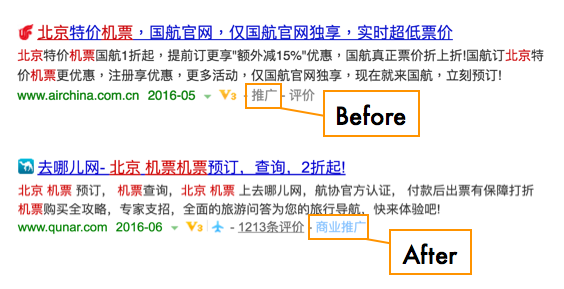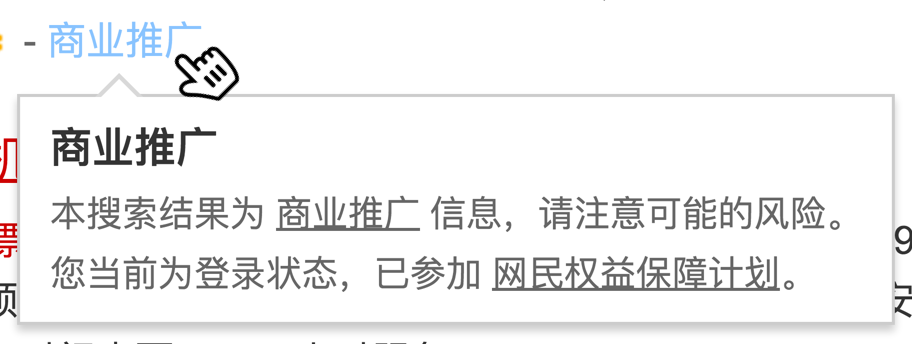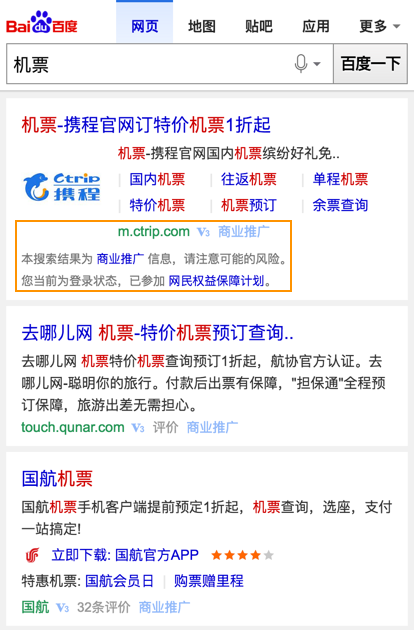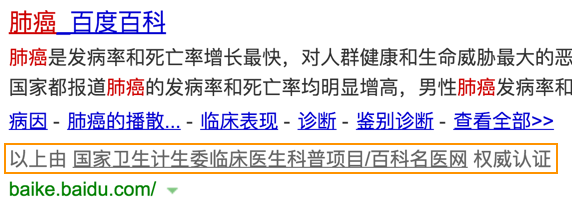Baidu Advertising changes after the Wei Zexi Scandal

Chinese search giant, Baidu has recently gotten into trouble after a user died as the result of using experimental drugs advertised on the search engine. The Chinese internet was up in arms, accusing Baidu from profiting off of fraudulent websites advertising dangerous products on their platform without adequate vetting by the search engine.
As a result, the government has imposed new regulations to improve credibility and transparency in search results, including limiting the number of ads on the page, making ads more distinguishable from organic results, and improving the quality of organic results. Baidu has recently responded with some major changes to their SERP and algorithm. Here’s how it affects you.
In response to the Chinese government’s regulations, Baidu soon announced several changes to their SERP and ranking algorithm:
Baidu now prohibits unqualified medical organizations and all military-run hospitals from advertising on Baidu. According to Baidu, they’ve already shut down accounts of 2,518 unqualified medical organizations and removed 126 million ads copies so far. When you are searching for life threatening diseases or other medical terms, you won’t see any ads at all.
Per the new government regulations, each page may not consist of more than 30% ads. In response, Baidu has reduced the number of ads shown on SERPs, especially on page 1. The maximum number of ads displayed is now 4, down from 18 previously.
A welcome change, as the SERPs look much cleaner after the update.
SERP for highly competitive query, “机票” (Air ticket)
After the update, only 4 ads on top are displayed, and 0 in the right column
Baidu has modified the design of ads to make them more distinguishable from organic results, and provide risk notifications for sensitive queries.

Before the update, search ads contained a small label in grey text as “推广” (Promotion). After the update, the ad label has been changed to “商业推广” (Commercial Promotion) and styled with light blue text.
If you click the new ad label, a popup will inform you about the commercial nature of this listing:

Translation: “This search result is a commercial promotion. Please pay attention to potential risks. You are currently logged in, and are already enrolled in the Internet Users Rights Protection Scheme.”
These changes are applied the same way on Baidu Mobile as well:

When you are searching on desktop and the result page contain ads, you will also see this sentence reminding you there’re ads on this SERP:

Translation: “This page contains commercial promotion information, please be aware of potential risks.”
Baidu has been known for its unclear separation of ads and organic results on its SERPs for years. You could go as far to say that this could be a main reason why this scandal arose.
With the new ad format we can see an improvement on this issue, but we still feel Baidu has some way to go in making the label clear enough for users to notice. Many people feel even Google and Bing need to improve in this regard, but compared to Baidu, they are still more clear in our opinion.
Baidu Search Ad

Google Search Ad

Bing Search Ad

To improve the results quality in medical related queries, Baidu has established a rating system for medical content and collaborate with different government bodies to improve quality of the medical content on China internet, thus giving users more accurate and authoritative medical information and services.
After the change, if you are searching for life threatening diseases, this sentence will also appear within the search snippet of websites that are verified by government or Baidu:
Original Sentence: “以上由 国家卫生计生委临床医生科普项目/百科名医网 权威认证”
English Translation: “This page is authorized by National Health and Family Planning Commission Clinicians Project / Baike Ming Yi”

In addition, there has been evidence that Baidu has been experimenting with their algorithms frequently over the past 5-6 weeks. SEO Zac, one of the most authoritative bloggers on Baidu SEO, has taken a look at some of these changes. He suggests that for some search queries, local news and Weibo content are ranking highly in SERPs, even though most of those results aren’t very relevant to the search query, and some of them are low quality / spammy pages. Check out the article here.
Baidu has also improved the Internet Users Rights Protection Scheme by setting up a billion dollar protection fund to payout victims resulted from fake or scammy search results.
While hard data is difficult to come by in the China SEM and SEO market, here’s what seems to be the major impact observed by the industry at large, gathered from our own interviews with major agencies, as well as the buzz from authoritative websites, blogs, and forums:
Baidu has their own Ad Rank system which will compensate high quality ads with more extra impressions, similar to how Google Adwords’ Quality Score works. New government regulations have stipulated that Baidu needs to update their ad quality score calculations to be more driven by credibility instead of bid price. However, at this point it’s difficult to see if Baidu has actually implemented this change yet.
Although there isn’t a concrete study on how their changes might affect organic / paid traffic there are a few take-aways we can make:
As always, we will keep you updated if we have any new findings in Baidu. If you have interesting data to share, please let us know!
A list of articles and discussion threads about this topic (In Chinese):